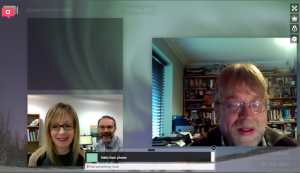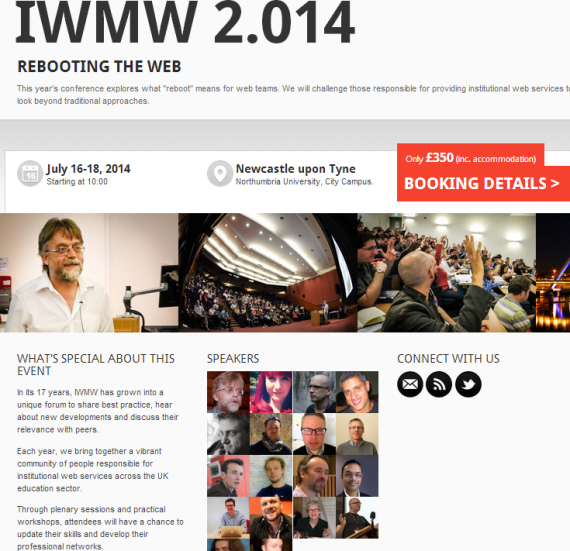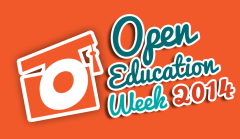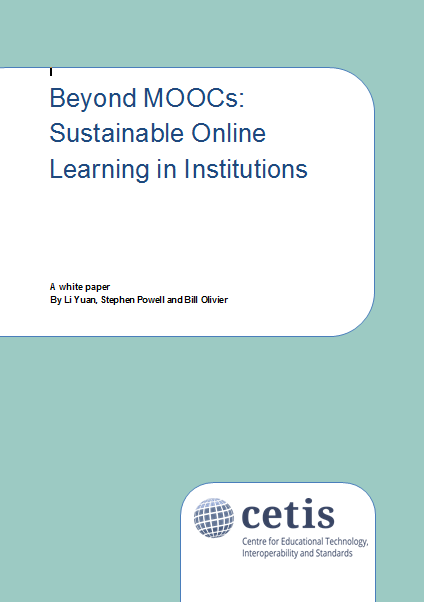Wikipedia and Information Literacy
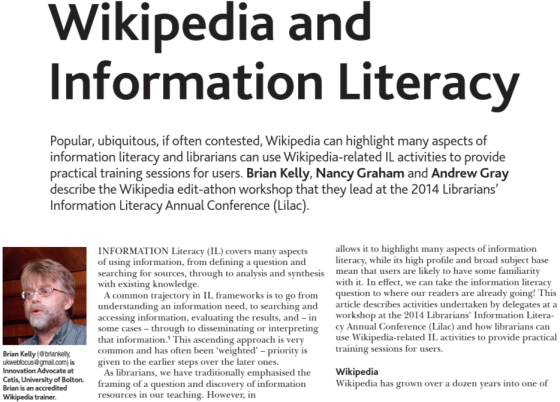 The current issue of CILIP Update (access restricted to CILIP members and subscribers) features a two-page article entitled “Wikipedia and Information Literacy“. The article, which was written by myself, Nancy Graham and Andrew Gray is based on the Wikipedia workshop sessions and talks which we gave at the LILAC 2014 conference in Sheffield in April 2014.
The current issue of CILIP Update (access restricted to CILIP members and subscribers) features a two-page article entitled “Wikipedia and Information Literacy“. The article, which was written by myself, Nancy Graham and Andrew Gray is based on the Wikipedia workshop sessions and talks which we gave at the LILAC 2014 conference in Sheffield in April 2014.
The article is aimed at librarians, especially those with interests in information literacy. As we described in order to address the pressures to do more in the time available for learning information literacy:
It is a good idea to consider use of resources and methods which are: a) already in widespread use; b) with which readers already have a positive relationship; and c) which can be used to demonstrate multiple aspects of information literacy within a single context.


